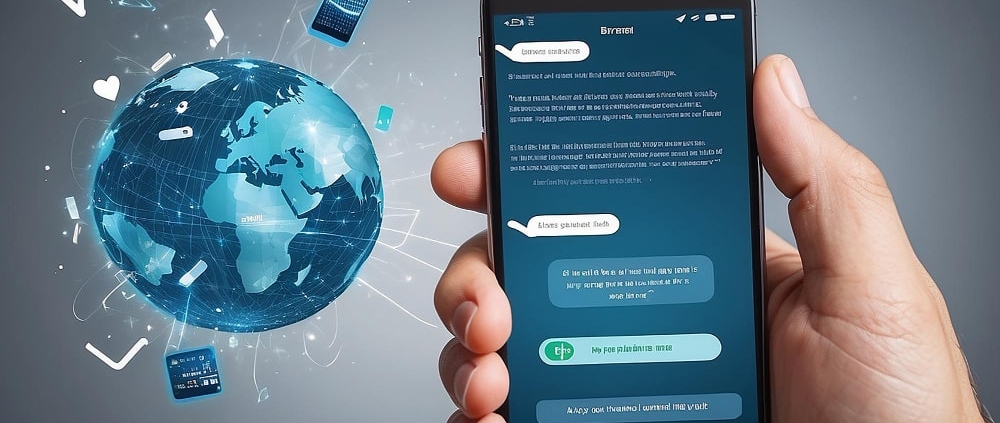Privacy in Pixels: Protecting Your Information in Cloud Based Translation
In today’s globalised world, effective communication across languages is essential. Cloud based translation services have emerged as powerful tools for businesses and individuals alike, facilitating seamless communication. However, as more organisations rely on these services, concerns regarding cloud data privacy and security grow increasingly pertinent.
This blog post explores the privacy and security issues surrounding cloud-based translation services and offers insights on how to navigate these challenges.
Understanding Cloud Based Translation Services
Cloud-based translation encompasses various technologies that enable users to translate content using internet-based platforms. These services often utilise cloud based translation management software, which streamlines the translation process, integrates translation memory, and supports terminology management.
Language service providers leverage cloud-based translation tools to enhance their workflows, improve quality assurance, and deliver translated content efficiently.
While the benefits of these services are significant, they come with inherent risks. Organisations must prioritise cloud privacy and security to protect sensitive data, including personal data, during the translation and localisation processes.
The Risks of Cloud Data Privacy
Data Breaches
One of the most significant threats to cloud data privacy is the risk of data breaches. Cloud services store vast amounts of translated content and sensitive information, making them attractive targets for cybercriminals.
A successful breach can lead to unauthorised access to personal data, which can be exploited for identity theft, financial fraud, or corporate espionage. Organisations must implement robust access control measures to protect data and minimise the risk of breaches.
Data Storage Concerns
Cloud-based services often store data in multiple data centres across different regions. While this redundancy can enhance data availability, it also raises concerns about compliance with local data protection laws. For instance, the General Data Protection Regulation (GDPR) imposes strict guidelines on how personal data can be processed and stored. Organisations must ensure that their cloud based translation partners adhere to these regulations, or they risk facing hefty fines and reputational damage.
Cloud Data Protection
To safeguard cloud data privacy, organisations should prioritise cloud data protection strategies. This includes selecting cloud based translation providers that utilise encryption protocols to protect data during transmission and storage.
Additionally, regular security audits and vulnerability assessments can help identify potential weaknesses in the cloud infrastructure, allowing organisations to address issues before they lead to significant breaches.
Cloud Privacy and Security Best Practices
Implement Strong Access Control
Access control is crucial in protecting sensitive data in cloud translation services. Organisations should adopt role-based access control, limiting user permissions based on their roles within the translation process.
This ensures that only authorised personnel can access sensitive information, reducing the likelihood of accidental or malicious data exposure.
Utilise Secure Cloud Based Translation Tools
When selecting cloud based translation tools, organisations should prioritise those that offer robust security features. Look for providers that comply with international security standards, such as ISO 27001, which provides a framework for managing information security.
Additionally, features such as two-factor authentication and secure data storage can enhance the overall security of cloud translation management.
Regularly Review and Update Security Protocols
The landscape of cyber threats is constantly evolving, making it essential for organisations to regularly review and update their security protocols. Conducting periodic risk assessments and staying informed about the latest security trends can help organisations adapt their strategies to address emerging threats effectively.
Protecting Sensitive Data in Translation Processes
Data Minimisation
One effective approach to protecting sensitive data is implementing data minimisation strategies. Organisations should only collect and process the data necessary for the translation process.
By reducing the amount of personal data stored, organisations lower their exposure to potential data breaches.
Anonymisation Techniques
Anonymisation is another valuable technique for protecting sensitive data. By removing personally identifiable information (PII) from translated content, organisations can significantly reduce privacy risks.
This is particularly important in industries such as healthcare and finance, where the exposure of personal data can have severe consequences.
Training and Awareness
Human error is often a significant factor in data breaches. Organisations should invest in training their employees on cloud privacy and security best practices.
By raising awareness of potential threats and reinforcing the importance of data protection, organisations can create a culture of security that permeates their translation processes.
The Role of Quality Assurance in Cloud Based Translation
Quality assurance (QA) plays a vital role in the cloud-based translation process. Ensuring the accuracy and consistency of translated content not only enhances communication but also mitigates privacy risks.
By incorporating QA measures into the workflow, organisations can identify and rectify potential issues before they escalate.
Implementing a robust translation memory system can significantly improve the quality of translations while reducing the need for repetitive data storage. This, in turn, minimises the amount of sensitive data processed, enhancing cloud data privacy.
Conclusion
As businesses increasingly rely on cloud-based translation services, the importance of addressing privacy and security issues cannot be overstated. Organisations must take proactive steps to protect sensitive data, implement strong access control measures, and choose secure cloud-based translation tools.
By prioritising cloud privacy and security, businesses can leverage the benefits of cloud-based translation while safeguarding their data and maintaining compliance with relevant regulations.
In a world where effective communication is paramount, understanding and addressing the privacy and security challenges associated with cloud-based translation services is essential for success.
By adopting best practices and prioritising data protection, organisations can navigate the complexities of translation and localisation while ensuring the safety of their sensitive information.
Break Language Barriers with TW Languages Your Trusted Translation Partner
At TW Languages, as a document translation agency, we handle all your translation requirements at highly competitive prices. Enjoy excellent translation services as provided by professional translators specially trained in converting content to and from English to more than 250 languages.
Contact Us and Unlock New Opportunities
Cloud Translation Uncovered: Your Top FAQs Answered
What is Cloud-Based Translation?
Cloud-based translation refers to the use of internet-based services to translate text and documents across various languages. These services leverage advanced technologies, such as neural machine translation (NMT), to provide real-time translations for a wide range of file types.
Cloud based translation tools allow users to access translation capabilities from anywhere, facilitating seamless communication and collaboration across different languages and regions.
What is Cloud-Based Language?
Cloud-based language typically refers to language processing services that operate in the cloud. This includes various applications such as cloud-based translation, natural language processing, and language learning tools that utilise cloud computing resources.
These services enable users to perform tasks like text translation, sentiment analysis, and language detection without the need for local software installations, making them accessible and scalable for users and organisations alike



